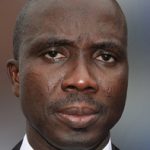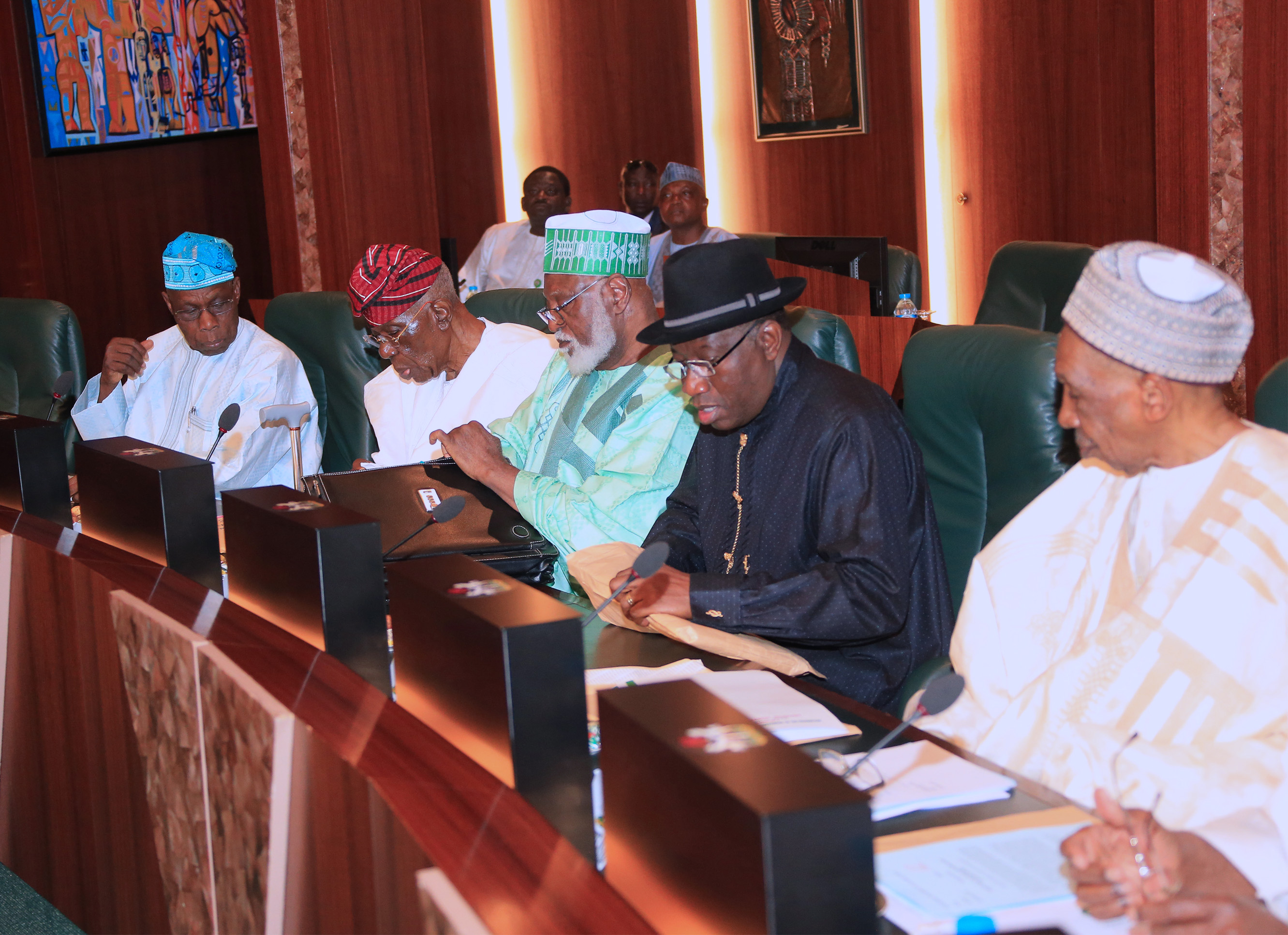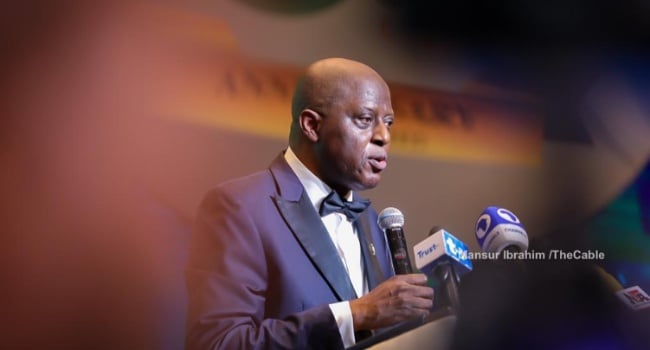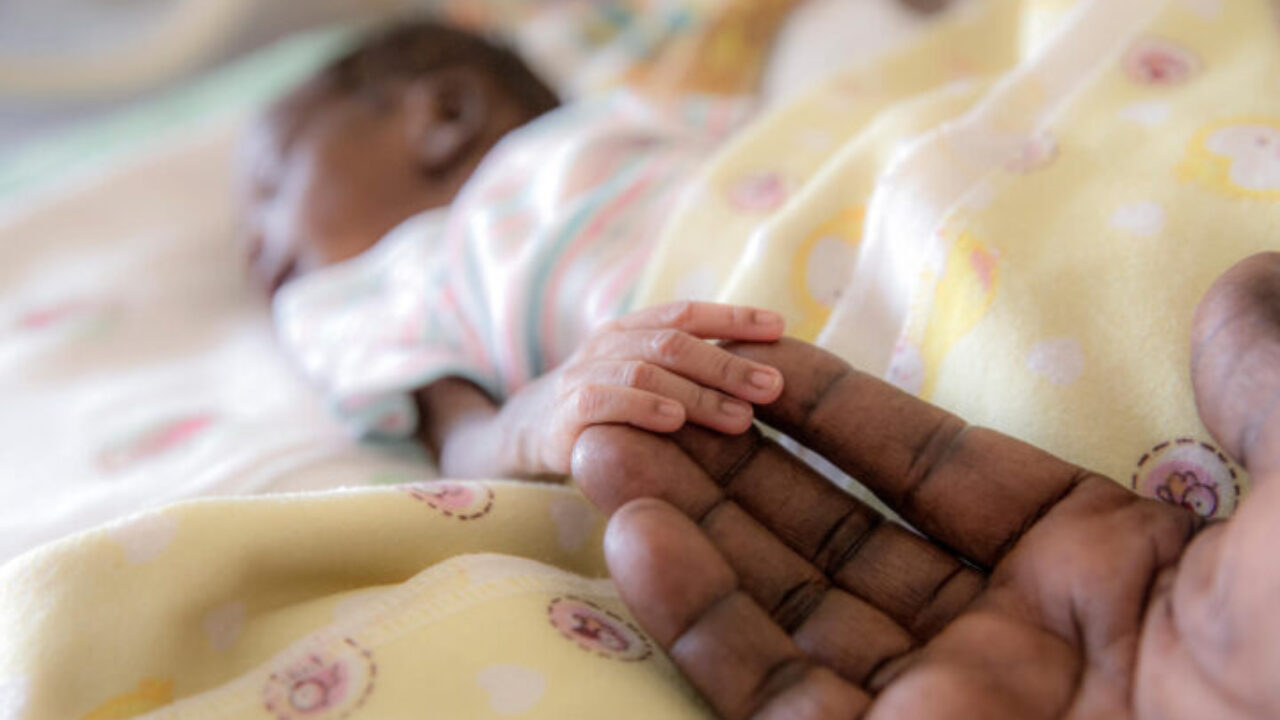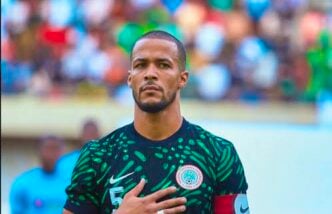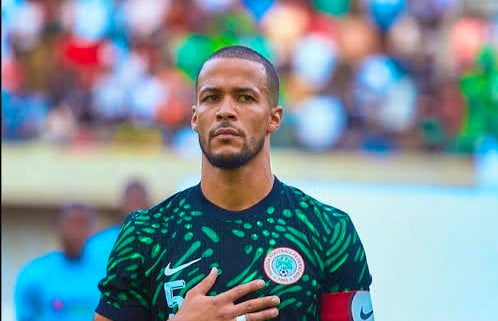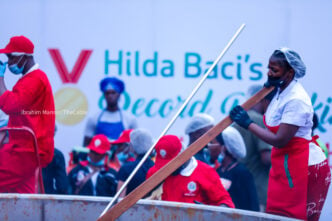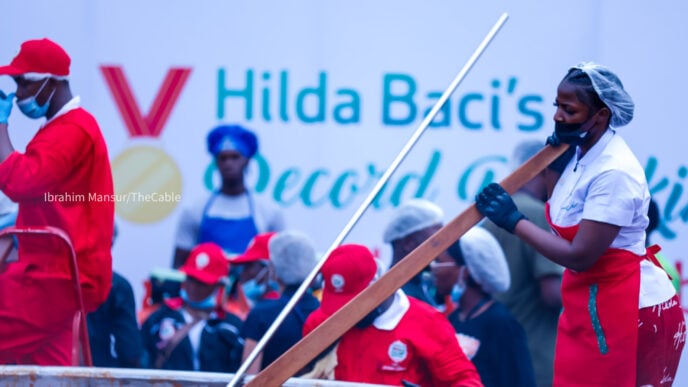Buhari presiding over Council of State meeting in 2016. In attendance were former heads of state: Olusegun Obasanjo, Ernest Shonekan, and Abdulsalami Abubakar
This article was inspired by an audio clip I recently listened to on a social media platform in which the late Chief M. K. O. Abiola narrated the financial, physical, and emotional toil he experienced while trying to sustain his elite football club, Abiola Babes FC, then located in my hometown, Abeokuta. As an ardent supporter, I am familiar with the Abiola Babes FC story. As a student, I would save my transport fare and trek to school to raise the gate fees for the club’s matches in the Challenge Cup either at their home turf which was Asero Stadium, or during the semi-finals and finals, at the National Stadium, Surulere, Lagos.
Well, this piece is not about Abiola Babes FC. After narrating many extra-ordinary sacrifices he made to sponsor the club in the continental competitions, including driving the bus conveying the players in a foreign country, traveling at odd hours, paying exorbitant fees to charter aircraft, renting hotels, providing feeding, and suffering several humiliations from government of host teams across Africa, Chief Abiola in that audio clip said he wound up the club because he remembered his father’s wise saying. His father late Chief Salawu Abiola, after hearing that Europeans usually have a post named ‘foreman’ in their factory retorted that it is sheer deception to exploit a man and drive him to his grave so early. “My father usually said: ‘No one man can do the work meant for four men’, Abiola said.
The older Abiola had literally translated the meaning of ‘foreman’ to mean the same thing as four men combined. Actually, a foreman “is a lower-level management supervisor responsible for overseeing a team of production workers to ensure smooth operations, adherence to safety regulations, and meeting production targets in a factory”. He is therefore expected to be a workaholic, ubiquitous, eclectic, and eagle-eyed supervisor in a factory. They are usually hated but feared, rather than respected, by factory production workers. However, they get the job done and keep the factory running and profitable. And that is all that matters to the entrepreneur or factory owner.
After listening to the Abiola tape, what has occurred to me is that as Nigeria moves towards 2027 to elect a President, what we need in our President is a ‘foreman’. I mean a ‘Four-man’. My own four-man combines some of the finest aptitude, attitude, qualities, and values of the first four Presidents Nigeria has had since the return of democracy in 1999. I mean the President of Nigeria should have in abundance some values that one can identify in the four presidents who governed Nigeria between 1999 and 2023.
Advertisement
I deliberately did not include incumbent President Bola Ahmed Tinubu in this analysis for several reasons. One, he is the incumbent. Let me not be accused of anything. Let there be no misunderstanding or misrepresentation. Two, he is the leading contestant in the race for 2027. Three, the jury is still out on his performance in the last 28 months, and as he moves on in his present tenure as President. Lastly, if I include him in the calculation, I won’t be able to get the concept of four-man again. I do not want five men to be in the mix.
What are the qualities in President Olusegun Obasanjo, late President Umaru Yar’Adua, President Goodluck Jonathan, and late President Muhammadu Buhari that are worth combining in a leader? At this point, I need to issue a caveat. These leaders have their individual faults. The fact is that if they had been as good as Lee Kuan Yew of Singapore, Sheikh Zayed bin Sultan Al Nahyan of the UAE, and Emperor Meiji of Japan, the country would probably not be where it is today. Maybe life would have been better for the incumbent and other future leaders and their fellow citizens. However, my piece is about their combined strengths, not weaknesses. I am concerned about what their combined strength will do for Nigeria at this critical time in the history of the country.
Obasanjo as president was a workaholic. He spent more time working on nation-building and national challenges than any president after him. A man whose day, working on files and other official matters, began as soon as the first call to prayers by the Muslim muezzin. From that time about 4.30 am, ministers would start getting text messages inviting them to see him later in the day with certain files, explanations, a briefing, and a debriefing, perhaps in company with some other officials. He would also start working on files and memos and might not go to bed till about 1am as well. However, he would not miss his two-hour afternoon siesta.
Advertisement
Obasanjo had energy. He was healthy and his constant performance in the squash court as president testified to the energy that he had. He was therefore on top of issues of governance. He had full control of his aides. He was also a pan-Nigerian President. Under Obasanjo, there was no case of concentration of power in the hands of one regional, ethnic, religious, or gender group or clique. He was a Nigerian statesman.
He was a president who had global acceptance. His assumption of office after the end of military rule also helped his administration to secure assistance from around the world as there was global interest in the survival of democracy in Nigeria. At every time, Obasanjo knew what he wanted to achieve and could identify the human resources that would help his success. He sure had a very brilliant team in his government, particularly in his second term.
He was a courageous, strategic, and deliberate leader. He was domineering, perhaps because of his military background, and could take tough measures like the mass retirement from service of military officers who had held political appointments in the past and the arrest/trial for corruption of the incumbent Inspector General of Police, Tafa Balogun. The former policy helped in taming the military and reducing the chances of a military takeover in the early days of the Fourth Republic. His government established more enduring institutions of state than any other after him.
The second aspect of my four-man President model would be taken from President Umaru Musa Yar’Adua. A very decent, honest, and unpretentious leader. Yar’Adua as a leader admitted that his election benefited from huge electoral fraud. As a result, he instituted a reform committee on electoral reforms. He was a reform-oriented leader. He was a democrat to the core and worked to promote democratic ideals and ideas.
Advertisement
As a graduate of analytical chemistry, the first university graduate to govern Nigeria, he was very analytical and deliberate in his policies, projects, and programmes. He was also a focused and silent achiever. He said he wanted to be known as a servant-leader, the one who led by showing good examples. He was determined to make positive changes. He was a financially disciplined and frugal person. A mellowed and mature man in the use of power and had the temperament of becoming an effective leader.
He was a believer in the concept of separation of powers and strived to deepen democracy, rule of law, due process, and separation of powers. He had a good capacity for devising a strategy for conflict resolution as he did with the Niger Delta militants through the amnesty programme.. He was bent on restoring the need for all to shun impunity and act in accordance with the law. But he was distracted by illness and died before he could fully unfold his plan for Nigeria.
President Goodluck Jonathan, the next in line, proved to be a promoter of democratic ideas. It is the reason why his administration supervised an election in which he was a candidate and he lost. He conceded victory to the opposition without any trick or resistance. He convinced the entire world that he is not a power monger. A conspiracy against his candidacy by his appointees who also stayed on in his government till the end, apart from other political mistakes he made, led to his defeat. Yet, he refused to move decisively against these internal saboteurs.
He personified the rise to power of the less privileged, ordinary Nigerians, and the minority ethnic group in a country dominated by the powerful aristocrats and the majority tribes. He was very healthy and the youngest to assume the presidency. He was 52 in 2010 when he succeeded Yar’Adua. He had the temperament for running a highly democratic government. He tolerated the opposition and allowed the National Assembly and the courts to function as independent and coequal arms of government.
Advertisement
Buhari who succeeded Jonathan came into office as a very popular president. This was a value he could have used to initiate strong and beneficial reforms that would have helped national development. He enjoyed initial public confidence such that public officers started acting prude and prudently in Buhari’s first few weeks in office on the strength of what was then called ‘presidential body language’.
It was when he failed to build on the momentum with concrete actions, policies, legislation, and programmes that everybody returned to the old ways, and even in a more ferocious manner. He was a disciplined and personally frugal man. He was not a flamboyant fellow. He had no scandal around his person.
Advertisement
I believe what we need to save Nigeria at this critical point is to combine the attributes of these four men as identified above in the current and subsequent leadership of the country. In addition, the President of Nigeria should also be a man who can conceive great ideas and work with a brilliant, devoted, and determined team to achieve them.
I have no doubt that the foreman that will be forged out of the qualities of these past four men is what we need to make Nigeria great.
Advertisement
Olaniyonu writes from Abuja.
Advertisement
Views expressed by contributors are strictly personal and not of TheCable.
